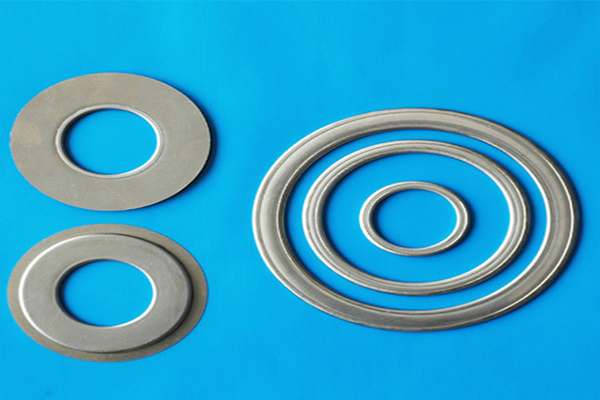Non-metallic gasket material
1. Natural rubber NR
It has good corrosion resistance to weak acids and alkalis, salt and chloride solutions, and poor corrosion resistance to oils and solvents. It is not recommended for ozone media. The recommended working temperature is -57℃~93℃.
2. Neoprene CR
Chloroprene rubber is a kind of synthetic rubber, suitable for the corrosion of acid, alkali and salt solution with moderate corrosion. It has good corrosion resistance to commercial oil and fuel. However, its corrosion resistance is poor in strong oxidizing acids, aromatic hydrocarbons and chlorinated hydrocarbons. The recommended working temperature is -51℃~121℃.
3. Butadiene Rubber NBR
NBR is a synthetic rubber that is suitable for having good resistance to oils, solvents, aromatic hydrocarbons, alkaline hydrocarbons, petroleum and natural gas in a wide temperature range. It has good corrosion resistance to hydroxides, salts and near neutral acids. However, its corrosion resistance is poor in strong oxidizing media, chlorinated hydrocarbons, ketones and lipids. The recommended working temperature is 51℃~121℃.
4. fluororubber
Fluorine rubber compound is made by mixing binary and ternary fluorine rubber with compounding agent and vulcanizing agent. In addition to excellent heat resistance, medium resistance, and good physical and mechanical properties, it also has low compression set, good elasticity and long service life. Fluorine rubber has outstanding heat resistance (200~250℃) and oil resistance. It can be used to make cylinder liner seals, rubber bowls and rotating lip seals, which can significantly increase the use time. The recommended working temperature is -40℃~232℃.
5. Chlorosulfonated polyethylene synthetic rubber

It has good corrosion resistance to acid, alkali and salt solutions, and is not affected by climate, light, ozone, commercial fuels (such as diesel and kerosene, etc.). It does not apply to aromatic hydrocarbons, chlorinated hydrocarbons, chromic acid and nitric acid. The recommended working temperature is -45℃~135℃.
6. Silicone Rubber
Silicone rubber has outstanding resistance to high and low temperatures, and can be used for a long time at 150°C without performance changes; it can be used continuously at 200°C for 10,000 hours, and it can maintain its unique flexibility in the operating temperature range of -70 to 260°C And the advantages of ozone resistance, weather resistance, etc., suitable for making sealing gaskets required in thermal mechanisms, such as sealing gaskets, valve gaskets, oil seals (suitable for water media), etc. Special silicone rubber can be used for making oil seals.
7. Ethylene propylene rubber
It has good corrosion resistance to strong acids, strong bases, salts and chloride solutions. But it does not apply to oils, solvents, aromatic hydrocarbons and hydrocarbons. The recommended working temperature is -57℃~176.
8. Graphite
The material does not contain resin or inorganic substances, and can be divided into graphite materials doped with metal or not doped with metal elements. The material can be bonded to make pipe gaskets with a diameter of more than 600MM. It has excellent corrosion resistance to many acids, alkalis, salts and organic compounds and heat transfer solutions, even high temperature solutions. It cannot be melted, but it will sublimate when it exceeds 3316℃. Under high temperature conditions, the material should be used with caution in strong oxidizing media. In addition to gaskets, this material can also be used to make non-metallic wound tapes in packing and spiral wound gaskets.
9. Ceramic fiber,
The ceramic fiber formed on the strip is a high-quality gasket material suitable for high temperature and low pressure working conditions and light flange conditions. The recommended working temperature is 1093°C. It can be used to make non-metallic spiral wound tape in spiral wound gaskets.
10. PTFE concentrates the advantages of most plastic gasket materials, including temperature resistance from -95°C to 232°C. In addition to free fluorine and alkali metals, it has excellent corrosion resistance to chemicals, solvents, hydroxides and acids. PTFE material can be filled with glass, its purpose is to reduce the cold flow and creep of PTFE.